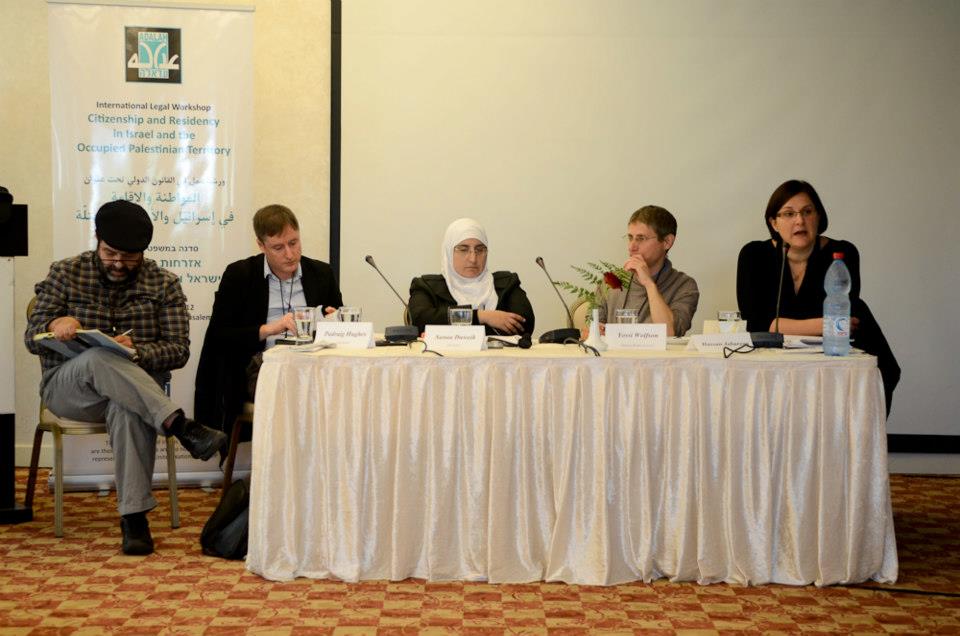First time ever: Israeli court rules to strip citizenship from Palestinian citizen of Israel

The Haifa District Court ruled on Sunday, 6 August, 2017 to revoke the citizenship of Alaa Zayoud, a Palestinian citizen of Israel serving time in prison on attempted murder conviction. This is the first time an Israeli court has ruled to revoke an individual's citizenship.

Adalah – The Legal Center for Arab Minority Rights in Israel and the Association for Civil Rights in Israel (ACRI) had earlier demanded that the court reject Interior Minister Aryeh Deri's request to revoke the citizenship of Alaa Zayoud.
Zayoud, from the town of Umm al-Fahem, was sentenced to 25 years in prison on a conviction related to an attempted murder. If his citizenship is revoked, Zayoud would become stateless as neither the interior minister nor the attorney general provided an alternative citizenship status for him, in contrary to the requirements of international human rights law.
Adalah Attorney Sawsan Zaher and ACRI Attorney Oded Feller issued a statement in response to today's the court ruling:
"The court ruling that allows the revocation of Alaa Zayoud's citizenship sets a most dangerous precedent. It is no coincidence that the concerned individual is an Arab citizen. There has never been a request to revoke the citizenship of a Jewish citizen, even when Jewish citizens were involved in serious and grave crimes. Unfortunately, the court today did not follow the lead of the Supreme Court which refused to order the revocation of the citizenship of Yigal Amir, assassin of former Prime Minister Yitzhak Rabin, and ruled that criminal law is the method by which serious crimes are confronted and denounced. Zayoud was tried and sentenced to 25 years in prison. Today's court ruling deviates from this approach, from the principles of international law, and from the general rule according to which an individual cannot be stripped of citizenship and left stateless. Adalah and ACRI will appeal this ruling to the Supreme Court."
Contrary to Israel & international law
In earlier arguments before the court, Attorneys Zaher and Feller emphasized the unconstitutionality of the 2008 amendment to Israel's Citizenship Law that authorizes the court to approve requests from the interior minister to revoke the citizenship of Israeli citizens for "breach of loyalty" – an amendment that is being applied in a discriminatory manner against Arab Palestinian citizens of Israel.
The revocation of citizenship has grave consequences given that the right to citizenship is the basis for other constitutional rights, including the right to political participation and socio-economic rights. Such a move therefore would result in the violation of the other rights that are guaranteed by the right to citizenship.
Likewise, international law explicitly and unequivocally opposes the revocation of citizenship, as established in the Universal Declaration of Human Rights, the Convention Relating to the Status of Stateless Persons, and the Convention on the Reduction of Statelessness, which Israel signed in 1961.
CLICK HERE to learn more about why this is important
A number of serious incidents in which Israeli Jewish citizens attacked Arab citizens have not resulted in any requests for revocation of citizenship status.
In 1996, the Israeli Supreme Court rejected a request to revoke the citizenship of Israeli Jewish citizen Yigal Amir, who assassinated then-Prime Minister Yitzhak Rabin in 1995. In that case, the Supreme Court ruled that the criminal justice system is the accepted method by which Israeli society expresses its reservations against criminal violations, stating that "society has expressed its reservation about this brutal murder, but that is no reason to revoke Amir’s citizenship, not because of the killer’s dignity, but because of the dignity of that right [to citizenship]."
CLICK HERE to read the court ruling [Hebrew]
Related Press Releases:
- Adalah, ACRI respond to move to revoke citizenship of Alaa Zayoud, a Palestinian Arab citizen of Israel
- Adalah, ACRI: Cancel law authorizing court to OK Interior Min.'s requests to revoke citizenship for 'breach of loyalty'
- Israel is trying to revoke Alaa Zayoud’s citizenship. Why is this important?

















